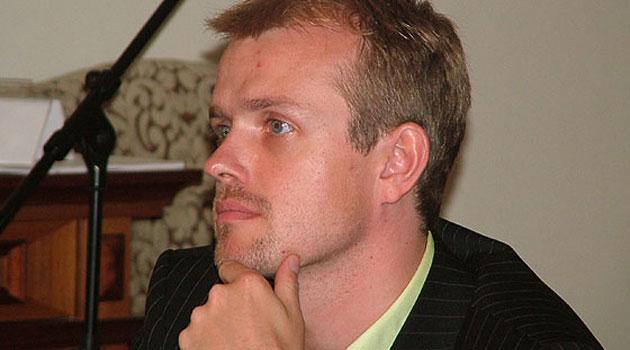In the most recent issue of the Insider weekly, Czech Government Human Rights Commissioner Monika Šimůnková has overcome her own limits and decided to take the unusual step of publicly speaking out against planned cuts to the state administration. Surprisingly, what is at issue is criticism of the Human Rights Section, which the Commissioner manages, not a more systemic critique of the mindless cuts across the entire public sphere, as one might expect.
According to Šimůnková, the position of Human Rights Commissioner is to be preserved, but its entire staff will be shut down, de facto paralyzing the office. What the Commissioner did not mention is the fact that the process of liquidating the Human Rights Section began when she took office. This most recent step is just the tragic finale of a process she has allowed to take place.
The position of Human Rights Commissioner was created in the year 1998. At that time, the government was in the hands of the Czech Social Democratic Party, which appointed Petr Uhl to this post. Mr Uhl not only created the job description for that position, he also laboriously established the office that is today called the Human Rights Section. All of the subsequent Commissioners (Jan Jařab, Svatopluk Karásek and Jan Litomiský) built the office up on this basis, and thanks to the Green Party, the position of the Commissioner also evolved the post of Human Rights Minister and was staffed first by Džamila Stehlíková and then by Michael Kocáb.
The current Commissioner could and should have carried on the successes and work of her predecessors. The agenda of the Commissioner/Human Rights Minister is a formidable and thankless one. It is an agenda that the public regularly denounces and that ministerial colleagues often undervalue as they become overwhelmed by the "more important" agendas on their desks. In my opinion it is an essential, irreplaceable position, a kind of litmus test of how people will respond to government proposals. Working directly at government level, this position is the voice of the people whose task is to protect the most vulnerable. It holds a mirror up to the government.
I consider this position to be immeasurably important and necessary. It doesn’t require hundreds of staffers, but we do need a figure in that office who will not be afraid to stand up to ministers, including the PM, and who will enjoy their natural respect. It has to be someone to whom they will listen. Here, perhaps, is the hidden problem.
Czech Prime Minister Nečas said himself that he chose a "bureaucrat" for the Commissioner position. Unfortunately, he chose an ineffective bureaucrat, one who has allowed the budget for her office to be halved during the two years of her management, particularly in the section of the subsidy programs through which the Commissioner has customarily supported the civic sector in important areas where financing has been lacking. This bureaucrat has allowed many experienced, knowledgeable experts to leave the office without being replaced. Even though she was appointed on the basis of a decree issued by the Government as a whole, this bureaucrat has let her speeches be edited by the PM’s staff. What few motions she has submitted to the Government have been edited to conform to what the PM’s advisers have told her. This is a bureaucrat whose participation in the Government is sporadic and whose voice is never heard. The PM primarily chose a bureaucrat who is not carrying out her basic mission of submitting motions to the Government that point out the human rights violations in our country, or of improving the position of the rights of groups and individual people in our country. All one has to do is look at the mere statistics on the Commissioner’s motions submitted and compare them with the number of those submitted by her predecessors – and primarily, compare their contents. Moreover, the Commissioner has allowed her influence over the Government’s advisory bodies to be restricted, bodies which once fell within the jurisdiction of previous Commissioners/Ministers. By doing so, she has disruptively reduced her collaboration with civil society.
I have been a vocal critic of the agony the human rights agenda has undergone in this country from the beginning. I am convinced the Czech Government needs a good, respected, strong Commissioner/Minister for Human Rights. The position reflects society’s approach to these issues and the situation of democracy in our country. The actual result of the proposed cuts, which will be decided on today, will be to divide up an integrated agenda among various ministries that will have neither the energy nor the time to occupy themselves with it. That is why this de facto liquidation of the Human Rights Section is a tragedy, and it is probable that it will not rise from the ashes in the future.
I definitely disagree with the interpretation of these events as an unexpected "bolt from the blue". Anyone who has been active in the human rights area and involved with human rights topics knows very well that this is the result of the (in)activity of Commissioner Monika Šimůnková. It is the result of this Government choosing a bureaucrat for this position, not a respected figure, and it may have even been a premeditated step on the part of Czech PM Nečas to make it possible for him bury this agenda once and for all with a minimum of hue and cry.
This piece was originally published on the author’s blog at iDNES.cz. Published with the permission of the author.
